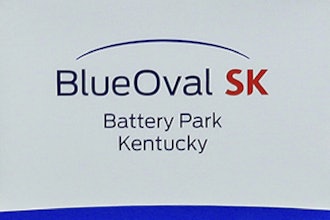
Producing quality products is the cornerstone of ethical manufacturing, meaning it is the legal requirement for dietary and pharma products. Consistent reliable quality is critical in medical and consumable products, such as pharmaceuticals, and dietary supplements One of the most significant accreditations of quality in these industries is GMP certification.
As the CEO of Linnea, a Swiss API company with over 40 years of experience, I operate a company that is GMP certified by Swissmedic. Switzerland has some of the world’s most stringent GMP regulations, and we are proud to comply with this standard of excellence. I would like to share why GMP certification is essential to manufacturers of all sizes in all pharmaceutical industries.
What is GMP Certification?
GMP is an acronym for “good manufacturing practice.” Good manufacturing practice’ means that products are consistently produced and controlled in accordance with the quality standards legally defined for the intended use.
These regulations ensure only high-quality and that consistent products reach the marketplace to be consumed by customers and patients.
These stringent requirements seek to ensure the overall quality of a product.
The world’s main exporting countries harmonized GMP requirements to avoid inconsistent quality parameters. The GMP regulations are set by World Health Organization GMP (WHO GMP) globally and ICH (International Conference of Harmonization) to define and harmonize interpretation of the quality standard to be applied to assure compliance to the pharmaceutical legal framework accepted by health authorities worldwide.
The WHO is the primary rulemaking body in the GMP hierarchy, with 56 countries agreeing to follow their standards.
International Council for Harmonisation’s (ICH) mission is to achieve greater harmonization worldwide to ensure that safe, effective, and high quality medicines are developed and registered in the most resource-efficient manner. Harmonization is achieved through the development of ICH Guidelines via a process of scientific consensus with regulatory and industry experts working side-by-side. Key to the success of this process is the commitment of the ICH regulators to implement the final Guidelines. Then for example in Europe the EMA regulation is accepted by all local country authorities in the region.
Some countries like Switzerland have stricter rules on top of those mandated by international and regional health authorities to further ensure the overall quality of a product.
What are the Steps to Achieving GMP Certification?
Health authorities in the different specific countries, such as, for instance, the Food and Drug Administration (FDA) in the U.S., Swissmedic in Switzerland and BfArM in Germany have to make regular GMP inspections, to ensure that GMP regulations are implemented by the local companies during the everyday operations.
To attain the GMP certification, the company needs to be inspected by their relevant Health authority, which will check the compliance with GMP regulation on all the processes related to the material flow. The key sentences for GMP are: write what you do, do what you write and document that you have done what was written.
One of the GMP requirements is the engagement requested to the manufacturers to always apply the most modern GMP rules: that is described by cGMP where c stands for “current”. The GMP rules, as said, are applying to all the processes related to the manufacture: you can also summarize those practices as GXP, where “X” stand for “any process”: GAMP (Good Automated Manufacturing Practices) to regulate the informatic systems, GDP (Good Distribution practices) to regulate the Distribution of the pharmaceutical goods, GACP (Good Agricultural and Collection Practices) to regulate the medicinal herbal substance grow and collection, GEP (Good Engineering Practices) to regulate the equipment and architecture of the plants, etc.
Each final dosage form produced is obliged on top of the health authorities through a site audit to control the GMP compliance of the manufacturer of each ingredient he is using before releasing each batch of pharmaceutical products on the market.
Site audits may include checking the compliance with GMP and regulatory dossier of the manufacturing process, of the equipment and engineering design and qualification, the process validation, the risk assessment of each chemical process, the statistical trend of the critical processes, the supplier qualifications, the change management and deviation handling, the analytical method validation and software compliance in the laboratories, the processes for release the product in the market and others like training evaluation of collaborators and more.
GMP Certification Benefits
The benefits of all these regulations is a legal requirement that should be fulfilled to get the manufacturing license released and be allowed to manufacture pharmaceuticals. These legally binding requirements on GMP are set to assure the three pillars of the pharmaceutical: assuring the Safety, the Quality and the Efficacy of each batch of pharmaceutical products in the market. GMP certification ensures the safety, the quality and the Efficacy of products for the sake of customers and patients. They can then rely on the quality of the product, bought in official shops or pharmacies.
Often companies try to circumvent this set of rules, because complying with all the regulations is a big investment for a company, increasing the cost of the product. However this approach can be very costly for the consumer.
Why Manufacturers Must be GMP Certified
GMP Certification is a legal must to enter into the pharmaceutical market.
The manufacturer should comply with legal requirements that regulate the manufacture and control of the medicinal product to get the license. This will ensure a safe product in the market. Safety, quality and efficacy are the three pillars to GMP certification from health authorities in the pharmaceutical industry.
As a manufacturer in the pharmaceutical industry, this point is critical: Helping people and improving their lives with the best quality ingredients and products should always be at the core of what manufacturers do, and GMP certification supports that mission.





















